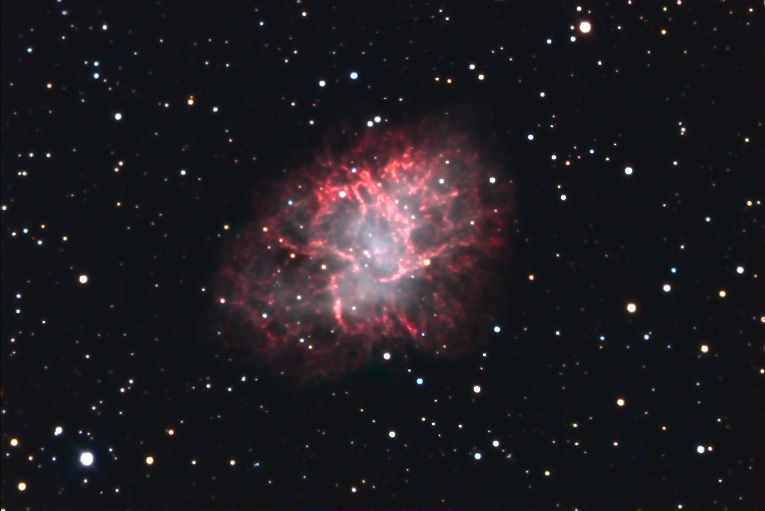|
A deep 3 hour exposure was essential to record the fainter outer filaments expanding outward in this famous object. In addition, the Luminance channel was taken through the red filter, making this a RRGB image. An additional hour for color data was added as well. Near the center, the close horizontal double star contains the pulsar powering this unique object. Seeing was average, about 2.2 arcsec FMHW. Processing: Calibration, flats and , L channel stacking in Maxim, RL deconvolution in AIP, Color stacking and combine to RGB in Maxim, and LRGB combine in Photoshop 6. Instrument: 12.5" f/5 Home made Newtonian Platform: Astrophysics 1200 QMD CCD Camera: SBIG ST7E w/Enhanced Cooling Exposure: LRGB = 60:20:20:40 (RGB Binned 2x2) Filters: RGB Tricolor Location: Payson, Arizona Elevation: 5150 ft. Sky: Seeing FMHW = 2.0 arcsec, Transparency 8/10 Outside Temperature: 15 C CCD Temperature: -25 C Processing: Maxim DL, Photoshop, AIP4WIN, PW Pro.
|
||
|
|
||
|
FastCounter by bCentral |
